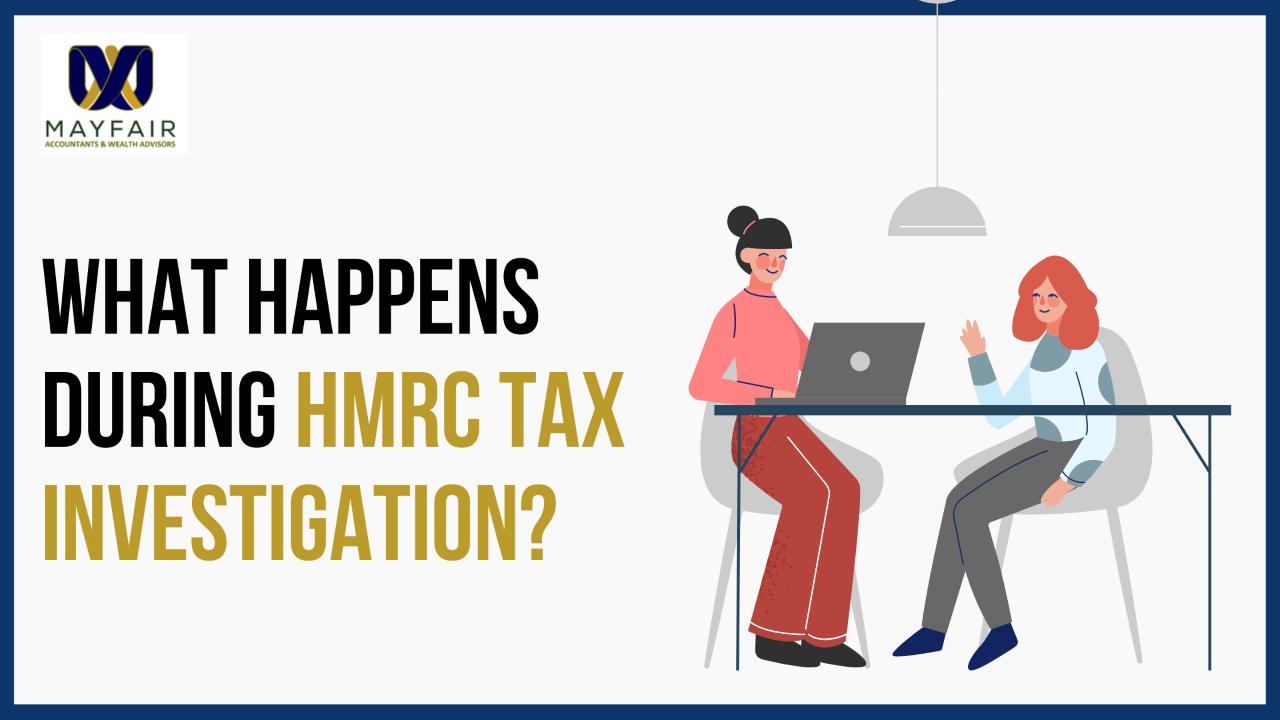HMRC tax investigation is the process in which HM Revenue and Customs collects information from a person or business to determine that they are obeying taxation rules. A tax investigation can be either voluntary or mandatory depending on how the individual, business or self-employed person responds to a letter requesting information about their unpaid taxes.
If a taxpayer fails to reply within a given time frame, the matter will become subject to enforcement action by HM Revenue and Customs. Enforcement actions might include property seizures, bank account freezes, arrest warrants, and court summonses. A person’s ability to travel may also be limited during any inquiry carried out by HMRC. In addition to this, if tax returns have been understated by more than £25000 then imprisonment could be imposed.
The aim of HMRC tax investigations is to ensure that all taxpayers are paying the correct amount of tax, based on their income and expenditure. Investigations can also identify any areas where people may be taking advantage of the tax system or avoiding paying taxes altogether. In some cases, it may be necessary for HMRC to pursue criminal prosecutions in order to recover unpaid taxes.
What should I do if I am being investigated by HMRC?
If you receive a letter from HMRC requesting information about your unpaid taxes, it is important to respond as soon as possible. If you are unable to provide all of the requested information immediately, you should contact HMRC to explain your situation and ask for more time to gather the required documents. Failure to respond to an HMRC letter can result in enforcement action being taken against you, so it is important to take the matter seriously.
If you are currently undergoing a tax investigation by HMRC, it is advisable to seek legal advice from an experienced tax lawyer. A lawyer can help you understand your rights and responsibilities during the inquiry process and can advise you on the best course of action to take.
HM Revenue and Customs (HMRC) is the UK government department responsible for the collection of taxes and the enforcement of taxation rules. HMRC carries out tax investigations in order to determine whether taxpayers are obeying these rules. Investigations can be either voluntary or mandatory, depending on how the individual responds to a letter requesting information about their unpaid taxes.
However, the first thing you should bear in mind is that you should be cooperative and above all be honest with the HMRC. You can do this either in person or over the phone. HMRC may ask to see documents, so it’s best to put them on a disc that you can post across – don’t bring your originals to any meeting.
If you are invited into an interview then it will probably be at one of their regional centers or offices where someone will interview you about the details they have for investigation. It may help if you prepare some notes about what happened during your business relationship with your clients before the company became insolvent as well as any records which you kept during that time while it was trading (invoices, receipts etc.). The interviewer may also ask what you did with any company assets when it failed – this is why a full and accurate paper trail is so important.
Bear in mind that HMRC are not out to get you, they’re just doing their job – but if you have something to hide then it’s best to come clean now before it gets worse. Remember, the aim of any investigation is compliance so try and help HMRC as much as possible so the case can be closed quickly.
If you are being investigated by HMRC, seek legal advice from an experienced tax lawyer at once. An attorney can provide guidance on your rights and responsibilities during the inquiry process and can offer assistance in crafting a response to HMRC’s request for information.
How do I stop an HMRC Investigation?
If you are being investigated by HMRC, the best way to stop the inquiry is to respond to their letter as soon as possible. If you are unable to provide all of the requested information immediately, you should contact HMRC to explain your situation and ask for more time to gather the required documents. Failure to respond to an HMRC letter can result in enforcement action being taken against you, so it is important to take the matter seriously.
How long has HMRC kept records?
HMRC is required to maintain records for at least six years. This means that they will have records of all tax-related transactions that have taken place in the past six years. If you are being investigated by HMRC, it is likely that they will refer to these records in order to establish whether you have been complying with the taxation rules.
Can I get legal representation during an HMRC Investigation?
If you are being investigated by HMRC, you may be able to seek legal representation from an experienced tax lawyer. A lawyer can help you understand your rights and responsibilities during the inquiry process and can advise you on the best course of action to take. However, it is important to note that legal representation is not always necessary and that you may be able to handle the inquiry process yourself.
What should I do if I can’t afford to pay my tax bill?
If you are unable to pay your tax bill, you should contact HMRC as soon as possible. They may be able to offer you a payment plan or other arrangements that will help you settle your debt. If you do not contact HMRC, they may take enforcement action against you in order to recover the money.
Can I go to prison for not paying my taxes?
If tax returns have been understated by more than £25000 then imprisonment could be imposed. However, this is generally only used as a last resort, and most people are able to come to an agreement with HMRC to pay off their debts through other means.
I’ve received a letter from HMRC; what should I do?
The best thing to do if you receive a letter from HMRC is to read it carefully and respond as soon as possible. If you are unable to provide the information requested by the deadline, call or write to HMRC at once and explain your situation. You should also contact them if you need more time for some reason, such as not being able to gather all of the required documents immediately after receiving the inquiry letter.
Need further help?
If you are unsure how this process works, or if you have any concerns about what your company’s future is likely to be, don’t hesitate to get in touch with the team today on +44 (0) 20 7060 5015 or email us @info@mayfairwealthadvisors.co.uk



